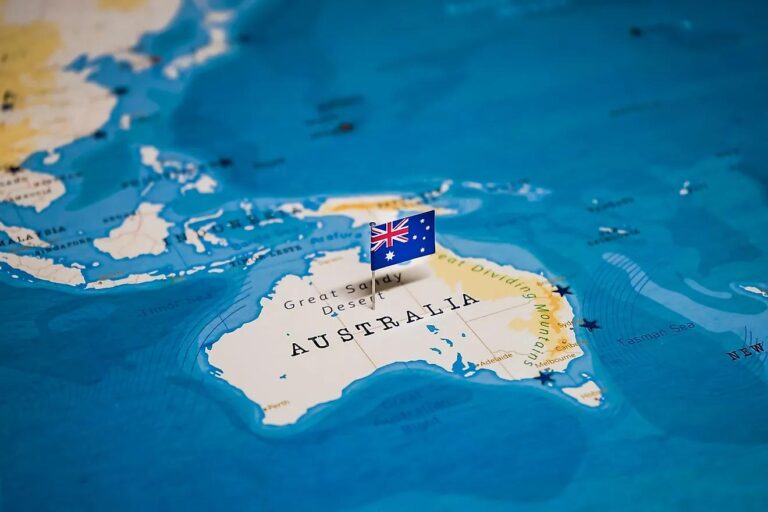Australia has come under renewed scrutiny after solidifying a controversial deportation agreement with the Micronesian island nation of Nauru. The deal, aimed at managing asylum seekers and immigration flows, has sparked debate both domestically and internationally over its legal and humanitarian implications. As Bloomberg.com reports, Canberra is steadfast in defending the pact, emphasizing its commitment to border security and regional cooperation amidst growing global migration challenges.
Australia Justifies Controversial Deportation Agreement with Nauru Emphasizing Regional Security
Amid growing international scrutiny, Australian officials have highlighted the strategic importance of their recent deportation agreement with Nauru. Framing the deal as a vital component of regional security, Canberra insists that cooperation with the Pacific island nation strengthens border integrity and deters unlawful migration routes. Government spokespeople emphasized that the partnership is designed to address broader concerns such as human trafficking, transnational crime, and the preservation of sovereign borders in a geopolitically sensitive area.
Key points highlighted by Australian authorities include:
- Enhancement of regional border enforcement capabilities through knowledge sharing.
- Support for Nauru’s infrastructure to manage increased deportee arrivals responsibly.
- Promotion of collaborative security frameworks in the Pacific, aligning with Australia’s broader foreign policy goals.
| Aspect | Details |
|---|---|
| Security Focus | Border control and migration deterrence |
| Deportation Volume | Projected 200+ persons annually |
| Support Measures | Funding for facilities and staff training |
| Strategic Goal | Regional stability and bilateral cooperation |
Human Rights Concerns and Political Backlash Surround Offshore Detention Practices
The controversial offshore detention practices, central to Australia’s immigration enforcement, have sparked widespread criticism from human rights organizations and political figures alike. Reports have emerged highlighting deteriorating conditions within detention centers on Nauru, including allegations of inadequate medical care, prolonged confinement, and the psychological toll on asylum seekers, particularly children. Critics argue that these measures violate international humanitarian standards and undermine Australia’s commitment to human rights.
In response, government officials emphasize that the arrangements with Nauru are essential for border security and deterrence of irregular maritime arrivals. Yet, opposition voices underscore the political risks, warning that the continued reliance on offshore processing could erode public trust and fuel domestic dissent. Key points fueling the backlash include:
- Lack of transparency regarding detainee treatment and legal recourse.
- Extended detention periods with minimal access to support services.
- Diplomatic strain between Australia and Pacific partners over resource and responsibility sharing.
| Issue | Reported Impact | Official Position |
|---|---|---|
| Mental Health | Increased cases of depression & anxiety | Ongoing medical support provided |
| Child Detention | Concerns over welfare and education | Programs implemented to assist children |
| Legal Access | Limited access to legal counsel | Efforts to improve legal aid underway |
Recommendations for Balancing Immigration Control with Ethical and Legal Obligations
To address the complexities of immigration control while upholding ethical and legal standards, policymakers must adopt a multifaceted approach prioritizing transparency, human rights, and cooperation. Effective immigration policies should incorporate rigorous oversight mechanisms and ensure that all actions comply with international law, protecting the dignity of individuals involved. Engagement with international bodies and non-governmental organizations can help Australia’s government navigate the delicate balance between enforcing border security and honoring humanitarian commitments.
Key measures to improve the deportation process include:
- Enhanced transparency: Public disclosure of detention and deportation procedures to build community trust.
- Regular independent audits: To verify compliance with human rights standards.
- Legal support accessibility: Guaranteeing detainees have effective access to legal representation.
- Improved bilateral dialogue: Strengthening communication with partner nations like Nauru to ensure cooperative and humane treatment of migrants.
| Factor | Recommended Approach |
|---|---|
| Legal Compliance | Strict adherence to international refugee and human rights laws |
| Ethical Consideration | Prioritize humane treatment and dignity |
| Operational Efficiency | Streamline procedures with independent monitoring |
| Diplomatic Relations | Ensuring mutual respect with partner nations |
To Conclude
As Australia continues to navigate the complexities of its border security policies, the defense of its deportation deal with the remote island nation of Nauru underscores the government’s commitment to managing immigration challenges. While critics raise concerns about human rights and conditions on Nauru, officials maintain that the agreement is a necessary component of a broader strategy aimed at deterring irregular arrivals. The ongoing debate highlights the delicate balance between national security interests and humanitarian obligations, a dynamic that will likely shape Australia’s approach to asylum seekers in the years ahead.




